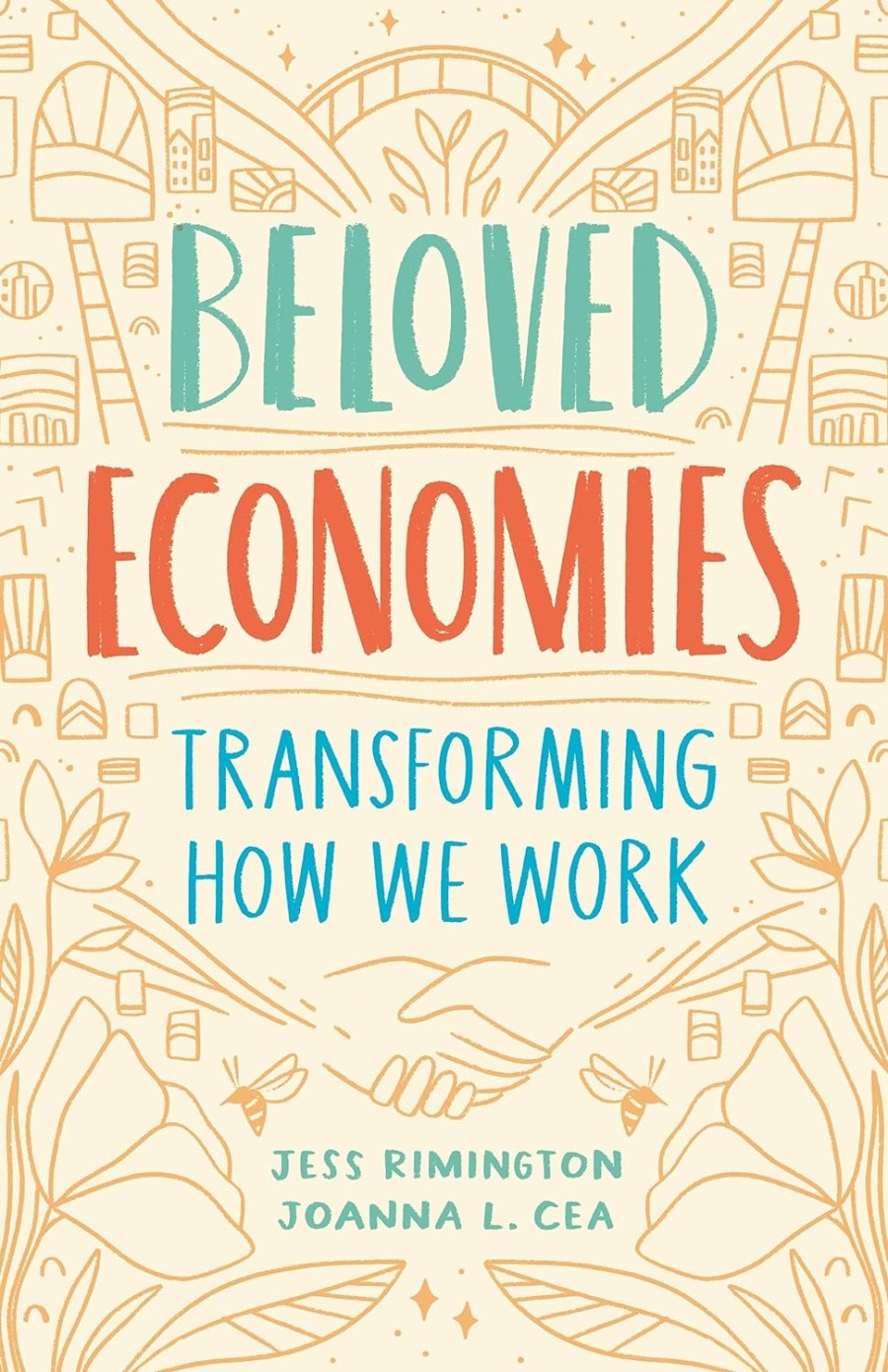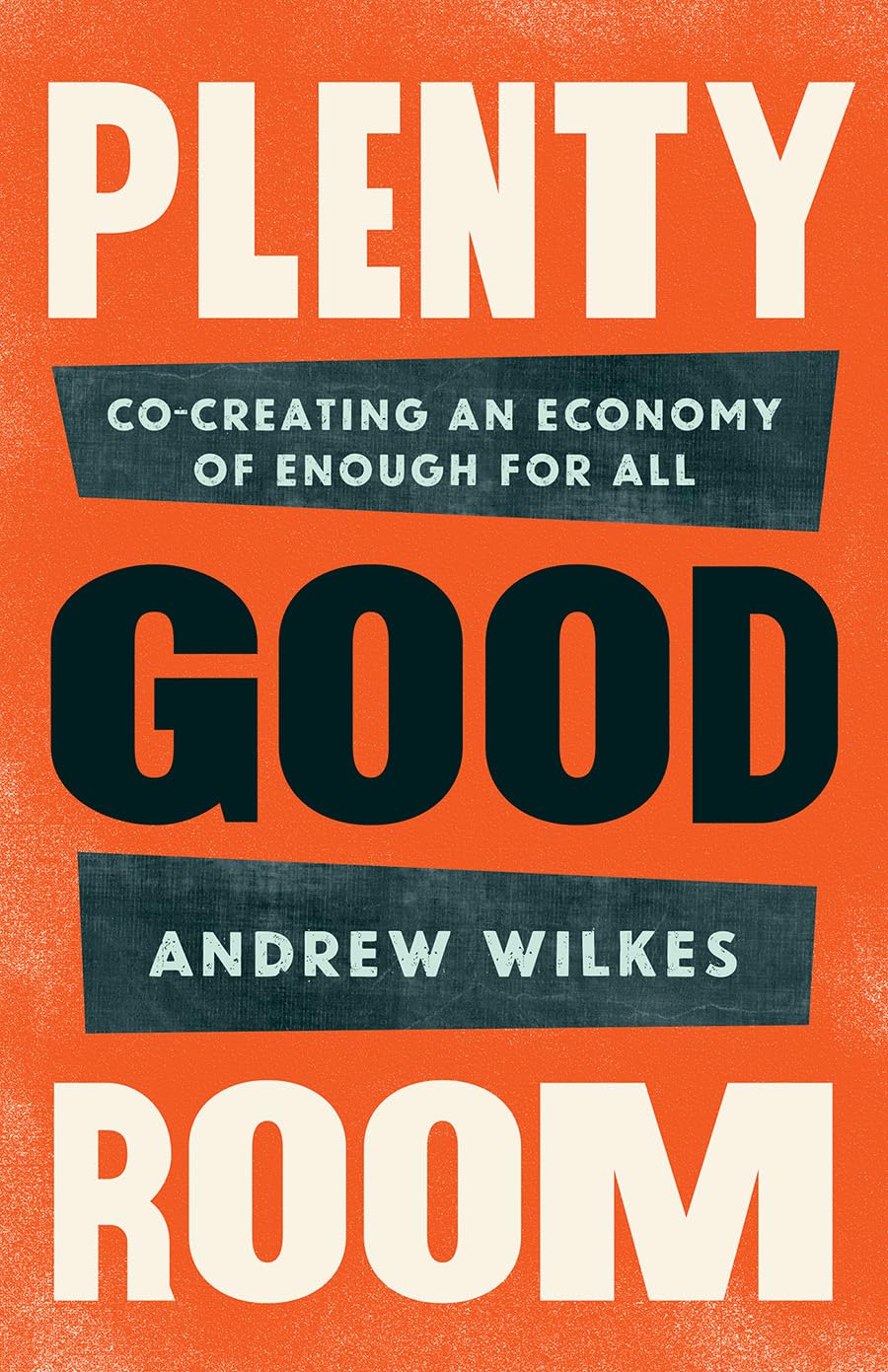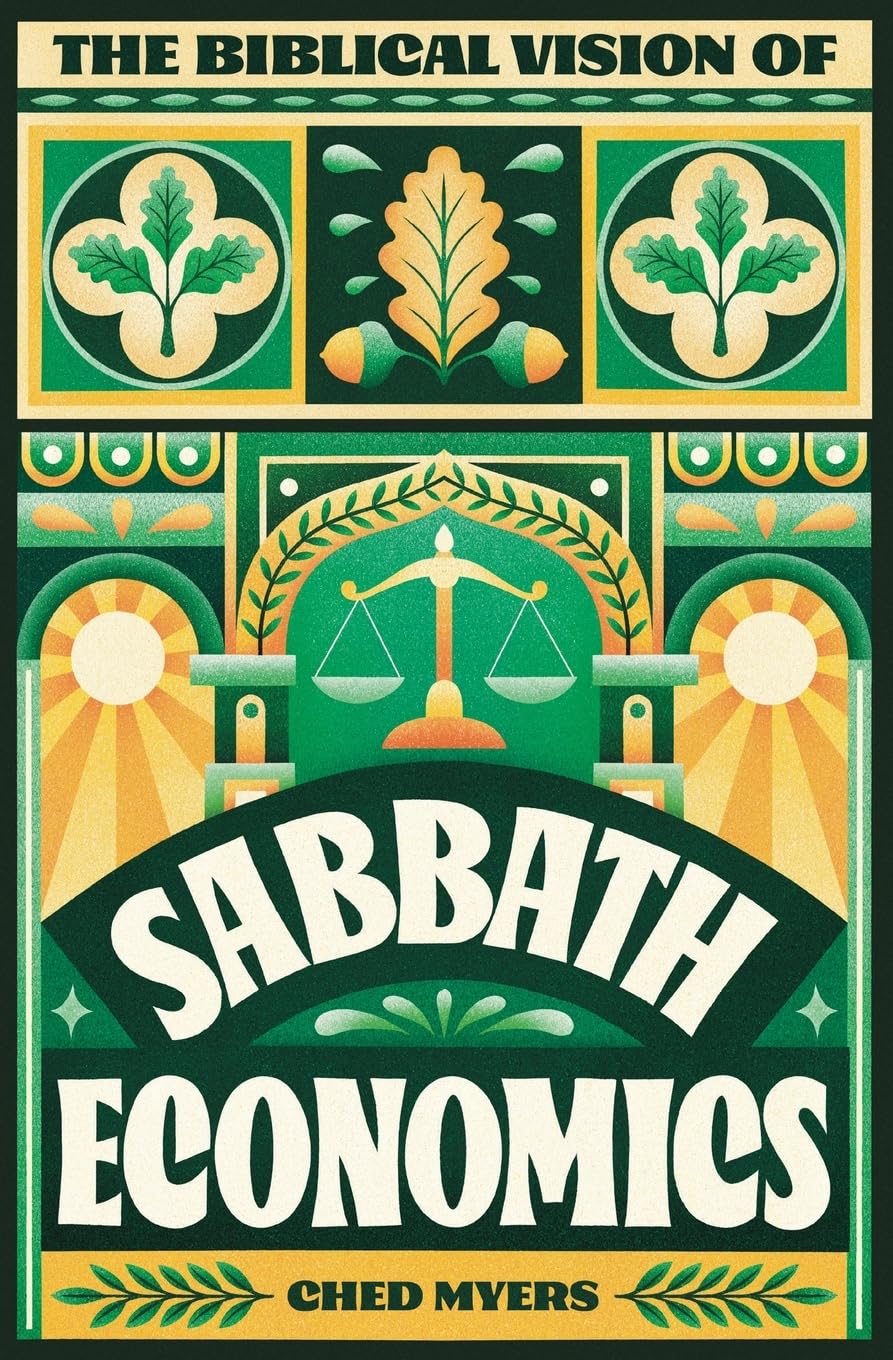Books about Alternatives to Economic Growth

MPs are obsessed with economic growth (an out-dated and terrible way to manage countries, also read our post on The Happiness Index, top rated is Costa Rica, we are not even near).
Beloved Economies is book of seven steps for for businesses, non-profits, farms and schools to build more purposeful economics that build trust and share power. ‘Work’ can work for us all, to build an economic future that is good for everyone.
Based on extensive research with organizations and companies that are boldly breaking out of business as usual, Beloved Economies offer readers an imagination-expanding vision of what work could be.
Looking at over 60 people from a wide range of professions, what these groups have in common is that they are generating forms of success that put well-being, meaning, connection and resilience at the hearts of their businesses, not just financial success and quality.
It’s not only what we do for a living, but how we do it – that moves us into economies that all of us can love.
The Seven Practices
- Share decision-making power
- Prioritise relationships
- Reckon with history
- Seek difference
- Source from multiple-knowing
- Trust there is time
- Share and test ideas
A compelling vision of a world in which the relationship between work, the environment and human flourishing, is one of harmony. All made vivid, through stories of people who are already changing the status quo. Eric Ries
Jess Riminton is an economy strategist who focuses on emerging post-capitalist ways of life. Focusing on the imagination of small business and organisation leaders, who are stepping out of current extractive systems.
Joanna Levitt Cea has worked in community efforts to stop destructive investments that threaten local livelihoods and ecosystems, and led the human rights organisation International Accountability Project, and was founding director of Buen Vivir Fund with Thousand Currents.
Plenty Good Room (an economy of enough for all)

Plenty Good Room lays out a more hopeful approach to economics – one of ‘enough’ for everyone. In a world ravaged by capitalism, this approach offers plenty good room – not just for a few, but for all.
Sharing tools and cars is good for communities and the planet. Repairing goods and passing things on reduces rubbish. Libraries, swap events and repair cafés help.
In a world ravaged by intensifying social justice and capitalism, this is a form of economics that works for everyone, not just a few. Capitalism does not work: it creates an uneven balance of power, constrains life chances and limits imaginations. It’s unkind and boring. It only benefits owners and investors.
This American book suggest an alternative to way to organise our life – as ‘homegrown as sweet potato pie!’ What if we could become moral engineers of the world we create? And challenge conventional greed, inequality and capitalism?
Drawing on the threads of history and Scripture, this book is also inspired by black radicals like Dr Martin Luther King Jr, pointing to how often it’s people in the Black Christian movement, who began these kind of changes. Which can permeate out towards a wider society.
Wilkes offers the biblical and theological foundations for economic democracy. He demonstrates that there is no distance between Jesus and justice. In fact, it’s what God requires and what all people of conscience must make real. Rev Dr Liz Theoharis
Rev. Andrew Wilkes PhD is co-pastor of the wonderfully-named Double Love Experience Church in Brooklyn, New York. Married to a fellow pastor, they regular use their voices to write for black social justice. He is a graduate of Hampton University and Princeton Theological Seminary.
The Biblical Vision of Sabbath Economics

You don’t have to be religious, to understand the benefits of Sabbath Economics. This collection of essays uses Biblical parables to reveal an ancient standard of social justice, waiting to be revived. Where one day each week is set aside for rest.
There is enough for everyone. The world is an abundant gift, where we can all live with gratitude and accept our limits. And forgiveness is not just a spiritual matter, but a practical reality for systems of debt and ownership.
In this concise and powerful collection of essays, the author grasps the nettles of Biblical stories and parables we prefer not to take literally, and reveals an ancient standard of social justice, waiting to be revived.
In a world of obscene inequality, these words are a timeless challenge to us, to live out the letters of Jesus’ teaching, and call others to work for Jesus and justice. Dr Sally & Dave Mann
Ched Myers is an activist theologian who has worked in social change and radical discipleship movements for over 45 years. With a degree in New Testament studies, he is a popular educator who ties Scripture with issues of faith-based peace and justice.
His most recent book is Healing Affluenza, influenced by the Gospel of Luke.
A Book on Doughnut Economics

Doughnut economics, a term shaped by economist Kate Raworth, argues for an economy that meets everyone’s needs within the planet’s limits. Imagine a ring (the doughnut): the inner edge is the social foundation, like food, housing and health. The outer edge is the environmental ceiling—if we break through it, we damage the planet.
A circular economy keeps resources in use for as long as possible, fixes items instead of throwing them away, and recycles everything it can. Local economies cut down on shipping and waste, support small farms and businesses, and share goods and services within communities.
Look at all the hoo-ha around the US trade tariffs. If we made things locally and supported each other (from food to manufacturing), we not need to worry about any foreign tariffs, we could look after ourselves.
‘Sustainability in all things’ should be our species’ philosophy. The Doughnut Model our compass for the journey. Sir David Attenborough
Our challenge is to ensure that no-one falls short on life’s essentials (food, housing, healthcare, democracy). While ensuring we do not overshoot our pressure on Earth’s life-supporting systems on which we depend, such as a stable climate, fertile soils and a protective ozone layer. Kate Raworth
The ‘Doughnut’ consists of addressing nine ‘planetary boundaries’:
- Climate change
- Ocean acidification
- Ozone layer depletion
- Chemical pollution
- Nitrogen & phosphorus (pollution leads to algal blooms)
- Freshwater withdrawals
- Land conversion
- Biodiversity loss
- Air pollution
Then we look at how areas of life can be used to ‘downsize the doughnut’ so we lead good lives, while protecting the planet and all creatures:
- Water
- Food
- Energy
- Health
- Education
- Income & Work
- Peace and justice
- Political Voice
- Social equity
- Housing
- Networks (communities)
- Gender equality
Some economists critique doughnut economics as ‘flowery and appealing’ but not based in reality. That’s not the point. It’s a visionary term for something more akin to how businesses and governments need to aspire to, in order to avoid environmental catastrophe.
A good example would be the recent relaxing of laws, that will build affordable homes on green belt land. Yes of course affordable homes are needed.
But instead of building concrete homes on land that will devastate our native wildlife, they could be built from straw bale (waste from the farming industry that is presently burned to create climate emissions) on brownfield land that is presently sitting vacant.





